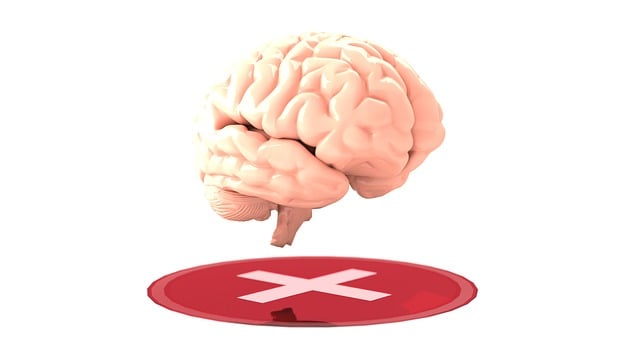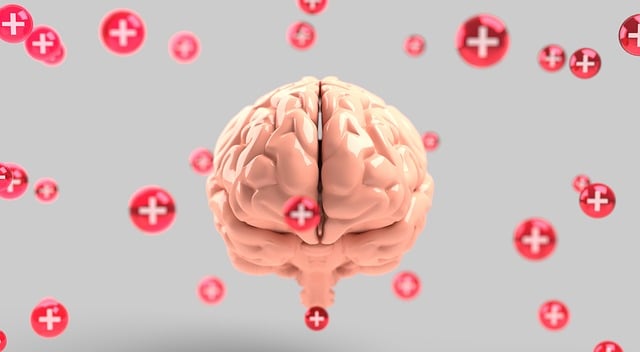Lafayette Mindfulness Therapy offers a structured approach to enhance mental wellness through positive cognitive strategies. By combining mindfulness meditation and mental wellness journaling, individuals can cultivate resilience, improve emotional regulation, and foster healthier relationships. This process involves identifying negative thought patterns, transforming them into positive, realistic thinking, and reducing burnout risk among healthcare professionals. Customized exercises tailored to individual needs, along with consistent daily practice (10-15 minutes), lead to improved emotional well-being and increased self-awareness over time. Regular self-reflection and professional feedback help measure success, while the Mental Wellness Podcast Series offers practical strategies for integration into daily life.
Discover the transformative power of positive thinking with Lafayette Mindfulness Therapy. This comprehensive guide explores effective strategies to implement positive thinking exercises, rooted in the principles of mindfulness. From understanding the concept to identifying and challenging negative thought patterns, you’ll learn how to design tailored practices for optimal well-being. We provide practical tips for integrating these exercises into daily routines, ensuring consistency and measuring success.
- Understanding Positive Thinking: The Foundation of Lafayette Mindfulness Therapy
- Identifying Negative Thought Patterns: A Key Step in Exercise Implementation
- Designing Effective Positive Thinking Exercises
- Integrating Practice into Daily Routine: Strategies for Consistency
- Measuring Success and Adapting Techniques for Optimal Well-being
Understanding Positive Thinking: The Foundation of Lafayette Mindfulness Therapy

Positive thinking is a powerful tool for enhancing mental wellness, and at the core of this concept lies Lafayette Mindfulness Therapy. This therapeutic approach emphasizes the profound impact of positive cognitive strategies on overall well-being. By nurturing a positive mindset, individuals can cultivate resilience, improve emotional regulation, and foster healthier relationships with themselves and others.
Lafayette Mindfulness Therapy encourages practitioners to engage in regular mindfulness meditation practices, which have been scientifically proven to reduce stress and anxiety. Additionally, keeping a mental wellness journal is another effective exercise guidance technique. This involves reflecting on daily experiences, acknowledging positive moments, and challenging negative thoughts. Through these practices, individuals can develop a more optimistic outlook, leading to improved decision-making, enhanced self-esteem, and better coping mechanisms in the face of life’s challenges.
Identifying Negative Thought Patterns: A Key Step in Exercise Implementation

Identifying negative thought patterns is a crucial first step in implementing positive thinking exercises. Often, individuals are unaware of the recurring negative thoughts that can contribute to feelings of stress, anxiety, and even depression. Lafayette Mindfulness Therapy provides a structured approach to uncover these patterns by encouraging clients to become more attuned to their internal dialogue. Through techniques such as journaling and mindful meditation, individuals learn to recognize recurring themes, such as self-criticism or catastrophizing, which can be addressed and transformed into more positive and realistic thinking.
This process is especially beneficial for healthcare providers who may be at risk of burnout due to the demanding nature of their work. Recognizing and challenging negative thought patterns can enhance resilience building, a key component in preventing burnout. By incorporating these exercises into their daily routines, professionals can improve their overall well-being and better equip themselves to handle stressful situations, thereby reducing the risk of depression prevention among healthcare workers.
Designing Effective Positive Thinking Exercises

Designing effective positive thinking exercises is an art that can be tailored to suit various contexts and individual needs. At Lafayette Mindfulness Therapy, we believe in empowering individuals through customized practices that foster resilience and a more optimistic outlook on life. These exercises should not only be engaging but also aligned with current research in mental health. Incorporating techniques like compassion cultivation practices has proven beneficial in reducing the mental illness stigma and enhancing overall well-being.
When creating such activities, it’s essential to consider the target audience and their unique challenges. For instance, risk management planning for mental health professionals can include exercises that promote self-care and stress reduction, ensuring these essential practitioners maintain their own mental health while supporting others. The key lies in balancing structure with flexibility, allowing participants to explore their thoughts and emotions while providing tools for positive thought patterns and mindset shifts.
Integrating Practice into Daily Routine: Strategies for Consistency

Incorporating positive thinking exercises into your daily routine is a powerful step toward enhancing mental wellness, right at the heart of what Lafayette Mindfulness Therapy advocates for. Consistency is key when it comes to reaping the benefits of such practices. A practical approach could be setting aside just 10-15 minutes each day for these exercises, treating it as non-negotiable ‘me time’. You might start your morning with a brief meditation or journaling session, or end your day with a reflection on the positives. Incorporating these moments into existing routines makes them easier to maintain. For instance, many find that practicing gratitude during their morning coffee or evening shower becomes a natural part of their day.
The Mental Wellness Podcast Series Production offers numerous strategies for consistent practice. These include using reminders, integrating exercises into activities like walking or commuting, and involving friends or family in certain practices to create a supportive network. Remember, small, regular doses of positive thinking exercises can lead to significant improvements in emotional regulation and self-awareness over time.
Measuring Success and Adapting Techniques for Optimal Well-being

Measuring success is a vital component of any positive thinking exercise. It’s not just about achieving specific goals but also tracking personal growth and improved mental well-being. Through regular self-reflection, individuals can gauge their progress in managing stress levels, enhancing focus, and cultivating a more optimistic outlook. This process involves setting realistic benchmarks, keeping a journal to record thoughts and emotions, and occasionally seeking feedback from peers or professionals like those at Lafayette Mindfulness Therapy. By quantifying improvements in areas such as anxiety relief and mental health education, individuals can stay motivated and adjust their practices accordingly.
Adapting positive thinking techniques is key to maintaining optimal well-being. What works for one person might not be suitable for another. It’s important to experiment with various strategies, including mindfulness exercises, cognitive reframing, and gratitude practices, to identify what resonates best with each individual. Incorporating these adapted techniques into daily routines can foster sustainable mental wellness coaching programs development. For instance, designing a personalized program that includes specific anxiety relief tactics during high-stress periods ensures individuals have tools to navigate challenging situations effectively.
Implementing positive thinking exercises, as outlined by Lafayette Mindfulness Therapy, offers a powerful tool for enhancing well-being. By understanding negative thought patterns and designing tailored practices, individuals can cultivate resilience and promote a more optimistic mindset. Integrating these strategies into daily routines ensures consistency, while measuring success allows for continuous adaptation and growth. This holistic approach, guided by the principles of Lafayette Mindfulness Therapy, empowers folks to embrace a brighter and healthier mental landscape.














